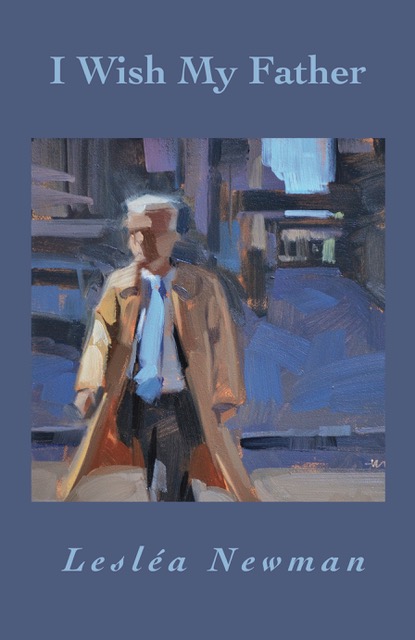WHEN MY FATHER WAKES UP
on that first sweltering night
of that first scalding summer
soaked in sweat like my mother
when she suffered those terrible
hot flashes 40 years ago,
he stumbles out of bed
and lumbers to the archaic air
conditioner, fumbling for the right
button to bring it back to life
with a wheeze and a groan and
a thump. Next he shuffles across
the faded carpet, slides between
the worn sheets, and lifts the torn
blanket to cover my mother
who will surely grow stiff
from the frigid air blowing
between them as she had
for more than sixty years.
Who could blame him
for forgetting she had left
him and was now slumbering
on the other side of town
wrapped in a shroud beneath
the stony, stubborn ground?
How he missed
her old cold
shoulder
YES WE HAVE NO
bananas.” My father croons
off key as we stroll
through the supermarket.
“Shall we get some?” he asks,
a standing joke between us.
My father hates bananas,
peaches, plums, mangoes
anything mushy makes him
shudder in disgust.
“Remember that time
I baked you banana bread?”
I stop our cart to ask.
“You loved it until I told you
what it was, remember?”
“Really?” my father says.
“Impossible.” he backs away
from the bananas as though
they mean him harm.
“I don’t remember.”
“Sure you do,” I insist.
“I put three pieces on a plate
and you ate them all.
It was the summer before
I went off to college.”
My father steers clear
of the bananas and pushes
the cart towards the deli
“Where’d you go to college again?”
he asks, placing a package
of rugelach into the cart.
“Vermont,” I say, removing
the rugelach which is bad
for his diabetes. “Don’t you
remember? We drove up
and stopped for lunch
at that diner in Montpelier,
and the one woman working
there was seating people,
taking orders, cooking,
running the register
and Mom felt so sorry
for her, she offered
to leap over the counter
and lend a hand, remember?”
At this my father brightens.
“Ah, your mother,” he says.
“She could have done it.
She could do anything.”
“Almost anything,” I correct him.
“There was one thing
she could never do.”
I reach for a bag of whole
wheat bagels. “What’s that?”
my father asks, genuinely curious.
“She could never get you
to eat a banana.”
“That’s true.” My father’s chortle
dies in his throat.
“I would eat every banana
in the world
just to see her one more time,”
he says, and we both fall
silent, make fists
around the handle
of our grocery cart
and together we push on.
Click Here to make a tax-deductible contribution.
MY MOTHER IS AT THE BRIDGE
table with Loretta, Gert
and Pearl, when my father
finds his way to heaven.
“Sit down, dear,” she says
patting a chair beside her
barely looking up from the hand
she’s been dealt. “The game is
almost through.” But my father is
too overcome to sit. He stands
and stares at his beloved, free
of wheelchair and oxygen tank
happily puffing away
on a Chesterfield King
held between two perfectly
manicured fingers, sipping
a cup of Instant Maxwell
House, leaving a bright red
lip print on the white china cup
her hair the lovely chestnut brown
it was the day they met,
her face free of worry
lines, the diamond pendant
he bought her on their first trip
to Europe glittering
against her ivory throat.
She looks like the star
of an old black-and-white movie
who would never give him
the time of day but somehow
spent 63 years by his side.
“I missed you,” my father
tells my mother, leaning down
to kiss her offered cheek.
“Of course you did,”
says my mother, who always
knows everything.
She plays her cards
right, and after Loretta and Pearl
and Gert fold, she stands to let
my father take her in his arms
and in their heavenly bodies
they dance.
“When My Father Wakes Up,” “Yes We Have No,” and “My Mother Is At The Bridge” copyright ©2021 Lesléa Newman from I Wish My Father (Headmistress Press, Sequim, WA). Used by permission of the author.
